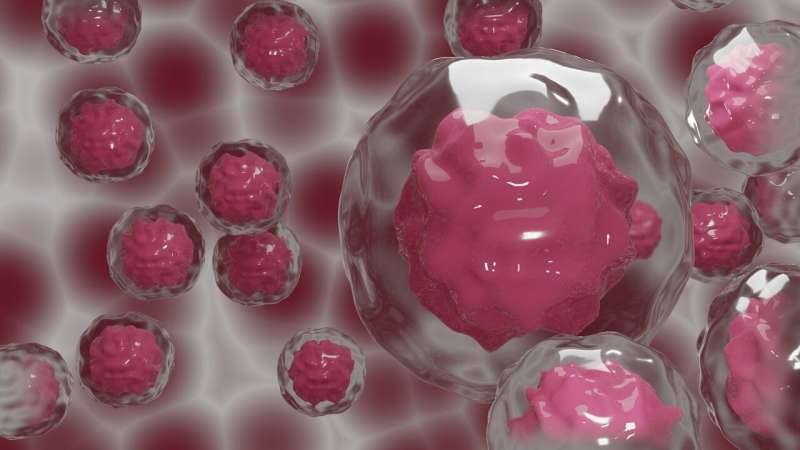This article has been reviewed according to Science X's editorial process and policies. Editors have highlighted the following attributes while ensuring the content's credibility:
fact-checked
peer-reviewed publication
trusted source
proofread
Study uncovers key immune cells for combating aggressive Merkel cell carcinoma

Merkel cell carcinoma is a rare but highly aggressive form of skin cancer known for its rapid growth and tendency to metastasize. Despite the promise of immune checkpoint blockade therapy, which can boost the body's immune response against cancer cells, nearly half of patients do not respond to this treatment. A new study published today in Cancer Discovery is providing insights into why some Merkel cell carcinoma patients respond to this type of immunotherapy while others do not.
Moffitt Cancer Center researchers, in collaboration with scientists at Robert H. Lurie Comprehensive Cancer Center of Northwestern University, conducted the largest and most comprehensive study to date on Merkel cell carcinoma. They analyzed samples from 116 patients using advanced multimodal techniques—bulk and single cell RNA sequencing, spatial transcriptomics and multiplexed immunofluorescence—to gain insights into the immune response and tumor characteristics. Their findings reveal that specific immune cells, particularly tissue resident CD8 T cells and γδ T cells, play a crucial role in the body's response to immune checkpoint blockade therapy.
The research team, co-led by Kenneth Tsai, M.D., Ph.D., vice chair of Pathology Research at Moffitt, and Jaehyuk Choi, M.D., Ph.D., at Northwestern University, discovered that those who respond to immune checkpoint blockade therapy have higher levels of preexisting tissue-resident CD8 T cells or Vδ1 γδ T cells within their tumors. These cells exhibit unique transcriptional programs and clonal expansion reflective of antigen specificity, meaning they can effectively recognize and attack cancer cells.
In contrast, tumors from those who do not respond to immunotherapy showed increased proliferation and markers associated with neuronal stem cells, as well as the inflammatory molecule IL-1.
Using spatial transcriptomics, the researchers demonstrated that these beneficial T cells are often found in close proximity to other immune cells like B cells and dendritic cells, which help enhance their activity by supplying necessary chemokines and costimulation. This close cellular interaction within the tumor microenvironment is a key factor in the effectiveness of the immune response.
"Our findings not only highlight the potential to use specific genes and immune cells as biomarkers for predicting patient response to immune checkpoint blockade therapy, but also suggest several approaches for abrogating resistance and enhancing efficacy," Tsai said.
"Importantly, patients with tumors already containing the right mix of immune cells before treatment were more likely to respond, suggesting that increasing their numbers with the correct localization could enhance treatment outcomes."
More information: Zachary Z. Reinstein et al, Pre-existing skin-resident CD8 and γδ T cell circuits mediate immune response in Merkel cell carcinoma and predict immunotherapy efficacy, Cancer Discovery (2024). DOI: 10.1158/2159-8290.CD-23-0798

















